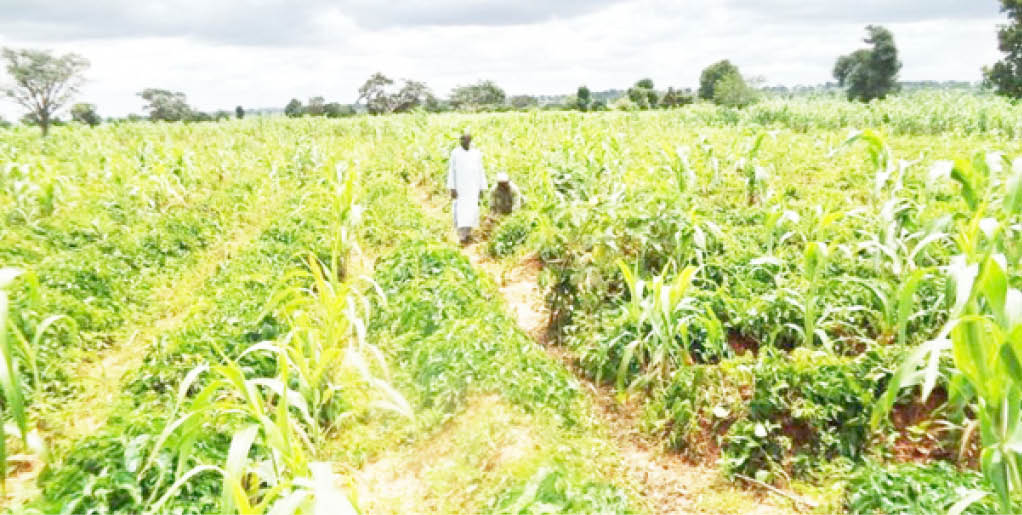In Yaryasa, Tudun Wada Local Government Area of Kano State, everyone is a cowpea (beans) farmer. However, the town is also endowed with the potential for rice, sorghum, and vegetables, which are also abundantly farmed.
In addition to these important products, they are fortunate to have a significant river and streams that provide abundance of fish, which helps many artisanal fishermen to support their families.
For the travellers passing through Yaryasa, which is located along the federal highway, cowpea, fish and clean local rice are very reasonably priced.
In the community, there are pockets of people who are medium scale cowpea farmers doing between two to ten hectares using different varieties.
‘Nigerian doctors have no reason going abroad’
Gunmen kill 1, abduct 8 others in Abuja suburb
Even the Pod Bora Resistant (PBR) variety called SAMPEA 20T is now popular among the farmers and they have now diversified into irrigation production taking advantage of a major seasonal river and watercourses that traverse through the community.
As the dry season activities intensify, young farmers are expanding from vegetables to dry season cowpea production while others have completely shifted to dry season production with a focus mainly on the PBR cowpea variety.
Alhaji Aminu Abdu is a well-known farmer in the area who has experimented with many cowpea varieties. He made the decision to explore dry season production last year, taking advantage of the PBR variety’s unusual potential output.
This is because the PBR cowpea type is resistant to the maruka worm, the primary pod-sucking insect that ruins farmers’ fields by up to 80% and forces farmers to spray pesticides sometimes up to 10 times. Alhaji Abdu claimed he decided to cultivate the beans in the dry season.
Abdu said he has harvested 2.5 metric tons during the wet season but expects at least 1.5 metric tons for the dry season because in the wet season, he had more acreage. However, for this dry season, he has about 1.5 acres along the bank of the river in the agrarian community.
According to him, he sprayed pesticides just twice on the PBR variety and would have spent more if other varieties were planted.
Closely located to his farm is Usman Yahaya, a 20-year-old student with one of the higher institutions in Kano. Along with his peers, he decided to own a PBR cowpea farm to generate extra income as the price of cowpea has gone up significantly in the last two years.
“We believe that the yield is exceptional and the pods can even withstand rainfall compared to our unconventional varieties. We even want to see if we can do so three times a year. You know during the dry season we are limited by factors like fuel to power the irrigation machine for water supply to the farm. That’s why we choose to work together as youth,” Yahaya said.
With a good climate for vegetable production and rich soil, fertiliser application for many of the cowpea farmers is optional according to Alhaji Aminu Abdu who, though did not apply fertiliser, has good vegetation and massive pods.
A younger farmer, Abdullahi Ibrahim, who appears to be in his late teens, was also observed by Daily Trust tending to the beans he had just recently planted.
His farm which looks green and attractive is the young farmer’s first experiment with irrigation production and the possibility for good output is already visible.
Speaking in Hausa, young Ibrahim expressed hope for a strong harvest, but did not give any specifics.
Daily Trust also came across harvest going on in one of the farms hosting a large number of women and children picking beans. Although the owner was not around when this reporter visited, the workers said they have been harvesting beans even in larger farmers and paid daily for their services.
The farmers said the PBR variety has in the last two years boosted their yield by more than 50% and is gradually becoming the farmers’ choice in the cowpea-growing community.
An extension officer, Alhaji Ado Garba, who lives in the community said many cowpea farmers in the community are now investing more in the cowpea variety because of yield advantages of the variety over others.
He added that farmers have increased their agronomy knowledge of all the varieties grown in the community.
By Vincent A. Yusuf who was in Yaryasa, Kano

 Join Daily Trust WhatsApp Community For Quick Access To News and Happenings Around You.
Join Daily Trust WhatsApp Community For Quick Access To News and Happenings Around You.


